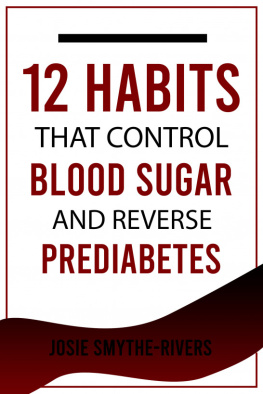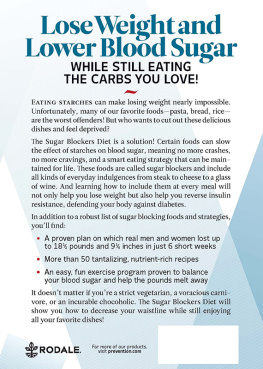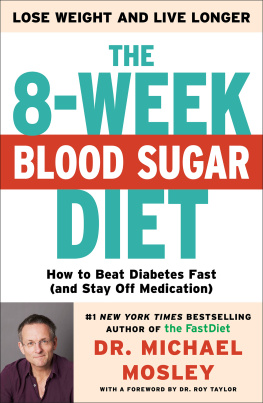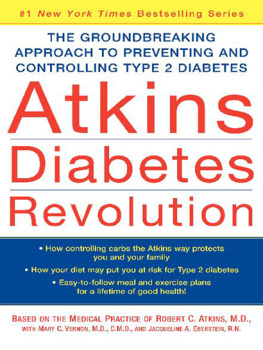
An Imprint of Simon & Schuster, Inc.
1230 Avenue of the Americas
New York, NY 10020
www.SimonandSchuster.com
Copyright 2015 by Parenting Matters Ltd.
Originally published in Great Britain in 2015 by Short Books
All rights reserved, including the right to reproduce this book or portions thereof in any form whatsoever. For information, address Atria Books Subsidiary Rights Department, 1230 Avenue of the Americas, New York, NY 10020.
First Atria Books hardcover edition March 2016
 and colophon are trademarks of Simon & Schuster, Inc.
and colophon are trademarks of Simon & Schuster, Inc.
For information about special discounts for bulk purchases, please contact Simon & Schuster Special Sales at 1-866-506-1949 or .
The Simon & Schuster Speakers Bureau can bring authors to your live event. For more information or to book an event, contact the Simon & Schuster Speakers Bureau at 1-866-248-3049 or visit our website at www.simonspeakers.com.
Interior design by Paul Dippolito
Jacket design by Anna Dorfman
Jacket Photos by Romas Foord
Library of Congress Cataloging-in-Publication Data
Names: Mosley, Michael.
Title: The 8-week blood sugar diet : how to beat diabetes fast (and stay off medication) / by Dr. Michael Mosley.
Other titles: Eight-week blood sugar diet
Description: First Atria Books hardcover edition. | New York : Atria Paperback, 2016.
Identifiers: LCCN 2015045485
Subjects: LCSH: Blood sugarPopular works. | DiabetesAlternative treatment. | DiabetesDiet therapyRecipes. | DiabetesNutritional aspects. | BISAC: HEALTH & FITNESS / Diseases / Diabetes. | HEALTH & FITNESS / Healthy Living. | HEALTH & FITNESS / Alternative Therapies.
Classification: LCC QP99.3.B5 M67 2016 | DDC 616.4/620654dc23 LC record available at http://lccn.loc.gov/2015045485
ISBN 978-1-5011-1122-8
ISBN 978-1-5011-1124-2 (ebook)
To my wife, Clare, for her endless love and support
Contents
Foreword
In 2006 I was turning the pages of a scientific journal when one particular page leaped out at me. It was a study of weight loss (bariatric) surgery carried out on obese people with type 2 diabetes. This particular page showed a graph of blood sugar levels following the surgery. Within days of the operation the blood sugar levels had returned to normal and many were able to come off their medication.
This was a striking finding because it was believed that type 2 diabetes was a lifelong, irreversible disease. People are usually advised that they have a condition that requires first pills, then possibly insulin, and they must get used to living with diabetes.
But what really grabbed my attention was the fact that the return to normal blood sugar levels was so rapid. This fit in with a theory I was developing at the time: that type 2 diabetes is simply the result of too much fat in the liver and pancreas interfering with insulin production. The sudden return to normal blood sugars had nothing to do with the surgery itself, but merely that eating had suddenly been cut down. If this theory was right, type 2 diabetes should be able to be completely reversed by food restriction alone.
Science moves slowly and carefully. Any hypothesis has to be tested rigorously. Over the last decade my research team and others working at Newcastle University have been investigating, in detail, the underlying mechanisms. We have developed new ways of measuring fat inside the liver and pancreas using powerful magnetic resonance scanners.
Now we have completed careful studies, which have shown that people who really want to get rid of their type 2 diabetes can, in just 8 weeks, lose substantial amounts of weight and return blood sugar to normal or near normal. They remain free of diabetes provided they keep the weight off. We have shown that it is possible to reverse a disease that is still widely seen as irreversible.
So what is the long-term impact on overall health? Are there drawbacks for some people? To answer these and other important questions Diabetes UK has funded a large study in primary care that will run until 2018.
In the meantime, I am delighted that Dr. Michael Mosley is highlighting the importance of using weight loss to control blood sugar levels. His great skill is in communicating medical science and relating this to everyday life.
In this book about the biggest health problem of our time, he pulls together hard scientific information from reliable sources. He weaves a tapestry that conveys great depth of understanding illustrated by many individual stories. He makes the important point that there is not one diet which suits all, and describes alternatives in a helpful fashion. The relevance of increased daily physical activity as part of long-term avoidance of weight regain is nicely summarized, as is the important interaction between mind and body.
If you have type 2 diabetes and are interested in trying to regain full health, this is a book for you. If the condition runs in your family, then pass the book around the family. In the twenty-first century we individually have to counteract a phenomenon new to our society: for the first time in 200,000 years of homo sapiens evolution we need to learn how to avoid harm from the ever-present excess of food.
Dr. Roy Taylor
November 2015
Introduction
Millions of us have high blood sugar levelsand many dont know it.
Maybe youre often thirsty or need to urinate frequently. Perhaps you have cuts that are slow to heal or you are unusually tired. Or, far more likely, you have no symptoms at all.
Yet raised blood sugar is very bad news. It speeds up the aging process, leads to type 2 diabetes, and increases your risk of heart disease and stroke.
This is a book about blood sugar. It is about the epidemic of type 2 diabetes that has engulfed the world in recent years. It is also about the insidious buildup of blood sugar that precedes type 2 pre diabetes. This is a wake-up call. A warning.
But theres no point in highlighting a problem unless you can do something about it. So if you have type 2 diabetes, I am going to introduce you to a diet that in just eight weeks can reverse it. If you have prediabetes, I will show you how to stop it from progressing.
Why do I care? Because a few years ago I was diagnosed as a type 2 diabetic, my blood sugar out of control.
First, a bit of background. I trained as a doctor at the Royal Free Hospital in London. After receiving my degree, I pursued a career in journalism, and for the last thirty years I have been making science- and health-related documentaries for BBC Televisionfirst behind the camera, more recently as a presenter. Ive reported on many of the great medical issues of the last three decades and interviewed numerous experts on a huge range of topics. This experience has given me a unique perspective. So Im not exaggerating when I say that the recent rise in diabesity (diabetes plus obesity) is truly scary.
To be honest, for most of my career I was not particularly interested in nutrition. There was next to nothing about the effects of food on the body in my medical training beyond the obvious eat less, get more exercise, which may be true but by itself is completely unhelpful advice.
A decade ago if you had asked me what I knew about diets, I would have told you with great certainty that the best way to lose weight was gradually, and with a low-fat diet. A pound or two a week was best, because if you went faster you would wreck your metabolism and end up yo-yo dieting. I occasionally tried following my own advice, lost a little weight, then put it straight back on. I didnt realize at the time just how bad my own advice was.









 and colophon are trademarks of Simon & Schuster, Inc.
and colophon are trademarks of Simon & Schuster, Inc.